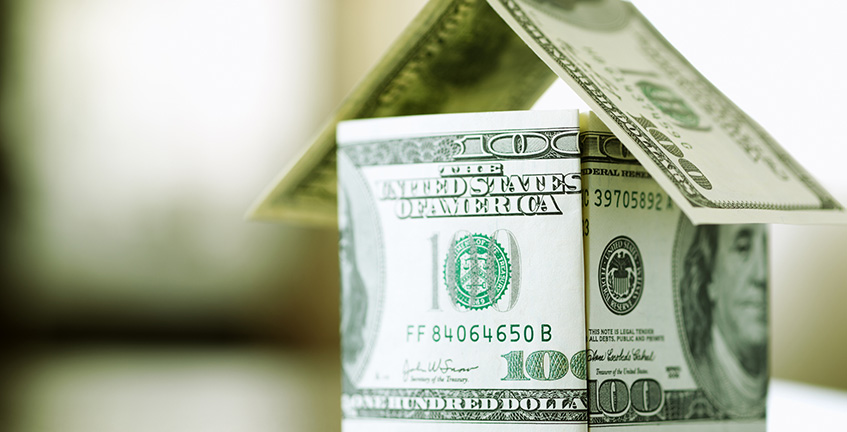
If you're a Florida homeowner struggling with skyrocketing property tax bills, relief might be on the horizon. A new legislative proposal could put $1,000 back in your pocket each year for the next five years, offering much-needed breathing room for budgets stretched thin by rapidly rising home values.
The plan comes at a time when many Florida residents, especially those on fixed incomes, are feeling the squeeze from property taxes that have climbed dramatically since the pandemic began reshaping the state's housing market.
The $5,000 rebate plan explained
Under House Bill 71, sponsored by Republican state Representative Jeff Holcomb, eligible homestead property owners would receive a total of $5,000 in property tax rebates between 2026 and 2030. The rebates would be distributed as $1,000 payments each year, providing consistent relief over half a decade.
State Rep. Jeff Holcomb (R-Spring Hill) aims to send $1,000 a year to homesteaded property owners over the next five years. The timing is strategic—Holcomb said his goal is to get payments to homeowners before November, when you really start to get those bills, and they have to start paying them.
Understanding the eligibility requirements
The rebate program targets middle-class homeowners who are feeling the pinch most acutely. To qualify, homeowners must receive a homestead exemption on properties valued between $100,000 and $450,000. This means your primary residence needs to fall within this range, and you must already be benefiting from Florida's homestead exemption, which reduces your taxable property value.
Property owners who already have an active homestead exemption and whose taxable value falls within the established range would not need to submit an additional application to receive the benefit. The verification process would be handled automatically by county assessors using existing records.
Holcomb told Newsweek that the rebates could help approximately 3.5 million Florida homeowners. That's a significant portion of the state's homeowning population, reflecting how widespread the property tax burden has become.
Who's eligible for the rebate program?
Must own a homesteaded property in Florida
Property's taxable value between $100,000 and $450,000
Must already have a homestead exemption
Must be a full-time Florida resident
Investment properties and second homes don't qualify
Why Florida needs property tax relief now
The numbers tell a stark story about Florida's property tax crisis. Property taxes have risen by 45 percent in Florida since 2019, following the skyrocketing of home values during the pandemic. For many homeowners, especially retirees on fixed incomes, this represents hundreds or even thousands of additional dollars each year.
The situation is even more severe in popular metropolitan areas. In pandemic boomtowns like Tampa and Jacksonville, property tax bills have risen by as much as 60 percent within the same time frame. This dramatic increase stems from historically low borrowing costs and the rise of remote work that unleashed a boom in demand for housing in the state.
Timeline and what to expect
While Holcomb has expressed hope for quick implementation, the reality is more complex. The rebate program would officially begin in 2026, with funds delivered before November of each year, coinciding with the season in which taxpayers receive property tax bills, which are typically due on March 31 of the following year.
The rebates proposed by Holcomb's bill would be administered by the Florida Department of Financial Services, while the state CFO would coordinate with property appraisers to determine eligibility and ensure funds are correctly distributed.
Also read: A new proposal could bring $1,000 rebate checks to millions of homeowners
Part of a broader property tax reform movement
The rebate proposal exists within a larger conversation about property tax reform in Florida. Governor Ron DeSantis announced a proposal to deliver immediate property tax relief to Florida homeowners: a rebate averaging $1,000 for each homesteaded property in the state. This proposal would benefit over 5.1 million homesteaded properties across Florida and marks a major step toward the Governor's long-term goal of eliminating property taxes through a future constitutional amendment.
DeSantis has also been advocating for eliminating property taxes in the state altogether, and said he's hoping for a constitutional amendment to be placed on the 2026 Florida ballot that will allow voters to have their say on the matter. State Rep. Jeff Holcomb, who sponsored the new bill, said the goal of the property tax rebate is to give homeowners some relief if the property tax elimination takes longer than expected.
Addressing local government concerns
The push for property tax relief hasn't come without concerns from local officials. Critics have said that property taxes are needed by local governments to pay for services, including police and fire departments, as well as for school funding.
Holcomb, who served as a county commissioner, understands these concerns firsthand. He said his goal is “not to damage local government because I know what those budgets look like. I know that public safety is a large, more than half of the budget in many cases.”
State Rep. Fentrice Driskell (D-Tampa) noted concerns from local mayors, explaining that property taxes don't even cover all of the expenses that they have for first responders.
What the Florida property tax rebate means for you
- $1,000 annual rebates for 5 years (2026-2030) totaling $5,000
- Available to homesteaded properties valued $100,000-$450,000
- No additional application required if you have a homestead exemption
- Rebates arrive before November tax bills each year
- Could help 3.5 million Florida homeowners
- Part of broader effort to eliminate property taxes entirely
Also read: IRS updates could change how much you owe this year and next
What this means for seniors on fixed incomes
For many Florida retirees, this rebate program could provide significant relief from one of the fastest-growing expenses in their budgets. A $1,000 annual rebate might cover several months of other essential expenses or provide breathing room for those whose property taxes have outpaced their cost-of-living adjustments.
The automatic eligibility process is particularly senior-friendly—if you already have your homestead exemption and qualify, you won't need to navigate additional bureaucracy or applications. The state would handle the verification and distribution automatically.
However, seniors should also consider the broader implications. While the rebates provide immediate relief, the ongoing debate about eliminating property taxes entirely could significantly reshape how local services are funded. This might affect everything from library hours to emergency response times—services that many seniors rely on regularly.
Read next:
- October brings energy relief: Four programs delivering up to $3,200 to cash-strapped Americans
- Your 2024 income could raise your Medicare costs in 2026—here’s how to avoid paying more than you should
- Are you missing out? Discover the “game-changing” Social Security update that could save seniors $500 annually
What are your thoughts on the proposed property tax rebates? Have rising property taxes significantly impacted your household budget, and would this relief make a meaningful difference in your financial planning?






